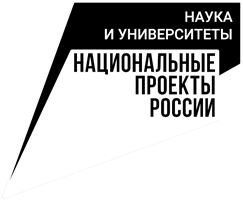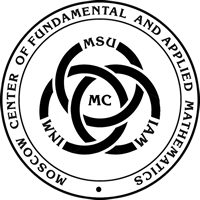Organizing Committee
- Huijun Fan (SMS PKU)
symplectic geometry and mathematical physics, geometric analysis - Sergey Gorchinskiy (MI RAS)
algebra and geometry: algebraic geometry, K-theory - Hailiang Li (SMS CNU)
fluid mechanics, partial differential equations, analysis - Jinsong Liu (AMSS)
algebraic geometry: singularity theory - Yi Liu (BICMR)
Topology of 3-manifolds, hyperbolic geometry - Denis Osipov (MI RAS)
algebraic geometry, number theory, integrable system - Ye Tian (UCAS, AMSS)
Number Theory, Arithmetic Geometry, Iwasawa Theory - Alexey Tuzhilin (MSU)
geometry: Riemannian and metric geometry - Yue Yang (CE PKU)
computation mathematics and mechanics - Ping Zhang (AMSS)
P. D. E.: fluid equation and semi-classical analysis - Alexander Zheglov (MSU)
geometry: algebraic geometry, integrable system
PROGRAM
11:00 (GMT+3)
| Bo Li Peking University |
|
|
Bio: Bo Li is currently a tenured associate professor at the College of Engineering at Peking University. He received his Ph.D. from the Department of Aeronautics at the California Institute of Technology. Previously, he was a Senior Research Scientist at the Jet Propulsion Laboratory and the Powell-Booth Computational Science Laboratory at Caltech, as well as a tenured associate professor in the Department of Mechanical and Aerospace Engineering at Case Western Reserve University, USA. Prof. Bo Li’s research focuses on the theoretical and computational simulation studies of dynamic behavior of materials under extreme thermodynamic conditions, such as high temperature, high pressure, high strain rate, and high heating and cooling rates, as well as the development of CAE software. He has published over 60 papers in leading mechanics and computational journals, including JMPS, CMAME, IJNME, and Int. J. Impact Eng. He has received the NASA Summer Faculty Fellowship and the NSF Career Award. He has been invited to give over 70 academic presentations at renowned international conferences and serves as an editorial board member and reviewer for several top international mechanics journals. |
|
A Lagrangian Meshfree Computational Framework for Materials in Extreme Dynamic Conditions.
Current cutting-edge scientific and engineering applications require the development of products and material systems under extreme working environments. This is particularly true for high-end equipment in fields such as aerospace, national security and defense, and advanced manufacturing, which often endure high temperature, high pressure, and high strain rate scenarios. There is an urgent need for breakthrough in fundamental extreme mechanics and computational simulation technologies for performance analysis and optimization of materials and structures in extreme conditions. This challenge imposes significant demands on the theoretical framework, high fidelity computational methods, and high-performance computing. This research starts from the mechanism of strongly coupled multiphysics processes, establishing a variational structure for the dynamic response of materials. By minimizing the effective potential, it reveals the competitive relationships of various energy dissipation mechanisms to predict the deformation, temperature, phase transformation, and failure of the system. Additionally, a Lagrangian meshfree framework is proposed to numerically solve complex physical phenomena such as large deformations, melting and vaporization, fluid-solid and thermal fluid-solid coupling, free surfaces, multi-body contact, and fracture under extreme conditions. The accuracy and performance of this framework are further validated in predicting the formation of micro-defects in metal additive manufacturing.
12:00 (GMT+3)
| Petr Grinevich MI RAS |
|
|
Bio: Petr Grinevich graduated from Moscow State University, Department of Mechanics and Mathematics in 1981, received PhD in 1984, scientific advisor Sergei Novikov, received doctor degree in 1999. Starting 1999 he worked in L.D. Landau Institute for Theoretical Physics RAS, starting 2019 he works in Steklov Mathematical Institute, RAS. His research interests lie in mathematical physics, including integrable equations and scattering theory. |
|
Totally non-negative Grassmannians and rational M-curves in the KP-2 theory.
For physical applications of the Kadomtsev-Petviashvili 2 equation it is necessary to know how to select real regular solutions. Multiline soliton solutions can be constructed using either Darboux-type transformations or by degenerating the finite-gap one.
If the Darboux-type construction is applied, the real regular solutions correspond to points of totally non-negative Grassmannians. In the finite-gap approach real regular solutions correspond to M-curves (Riemann surfaces with maximal number of real ovals).
The aim of our talk is to establish a bridge between these two important constructions. All necessary definitions will be presented during the talk.
The talk is based on joint works with S. Abenda.
The meeting will be held in the form of a webinar on the Voov platform.
1) Download VOOV from here https://voovmeeting.com/mobile/downloadindex.html
2) Install it and register in it naturally (registration by e-mail).
3) However, if you have some difficulties, please, consult to https://zhuanlan.zhihu.com/p/589899174?utm_id=0
To Join Tencent Meeting:https://meeting.tencent.com/dm/hqYEj68Ft9hH
Meeting ID:638-406-013
Password:202403

